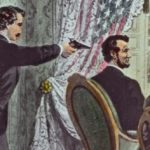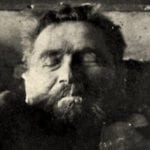 Mysteries
Mysteries  Mysteries
Mysteries  History
History 10 Surprising Stories About the Texas Rangers
 Humans
Humans 10 Philosophers Who Were Driven Mad by Their Own Theories
 Miscellaneous
Miscellaneous 10 Video-Game-Worthy Weapons and Armors from History
 Weird Stuff
Weird Stuff 10 Psychics Who Accurately Predicted Wartime Events
 The Arts
The Arts 10 Pieces of Art Inspired by a Broken Heart
 Health
Health 10 Science Fiction-Sounding New Medical Treatments
 History
History 10 Surprising Facts About the Father of Submarine Warfare
 Space
Space Ten Astonishing New Insights into Alien Worlds
 Weird Stuff
Weird Stuff 10 Bizarre Summer Solstice Rituals Still Practiced Today
 Mysteries
Mysteries Top 10 Haunting Facts About the Ghost Ship MV Alta
 History
History 10 Surprising Stories About the Texas Rangers
 Humans
Humans 10 Philosophers Who Were Driven Mad by Their Own Theories
Who's Behind Listverse?

Jamie Frater
Head Editor
Jamie founded Listverse due to an insatiable desire to share fascinating, obscure, and bizarre facts. He has been a guest speaker on numerous national radio and television stations and is a five time published author.
More About Us Miscellaneous
Miscellaneous 10 Video-Game-Worthy Weapons and Armors from History
 Weird Stuff
Weird Stuff 10 Psychics Who Accurately Predicted Wartime Events
 The Arts
The Arts 10 Pieces of Art Inspired by a Broken Heart
 Health
Health 10 Science Fiction-Sounding New Medical Treatments
 History
History 10 Surprising Facts About the Father of Submarine Warfare
 Space
Space Ten Astonishing New Insights into Alien Worlds
 Weird Stuff
Weird Stuff 10 Bizarre Summer Solstice Rituals Still Practiced Today
10 Notable And Forgotten Outsiders Who Ran For US President
As of this writing, the United States is gearing up for another presidential election. Leading the charge on the conservative side are Donald Trump and Ben Carson, two candidates who have never held political office. For most Americans, and people around the world, it is unusual to see a chunk of the US electorate wanting a president who has never been a politician. However, Americans have a history of backing non-politicians for president. Here are 10 candidates who had never held office but still tried to become the president of the United States.
10 Jonathon Sharkey
Sometimes it’s impossible to tell how seriously certain candidates are taking their campaign. This applies to no one more than Jonathon Sharkey, a brash former pro wrestler and self-described vampire who ran for president in 2004, 2008, and 2012. He ran as an independent the first two times and briefly ran for office as a Republican in 2012, although his campaign ended before 2012 even began. Sharkey goes by the nickname “The Impaler” and has a variety of interesting beliefs.
As mentioned above, Sharkey is a self-described vampire. According to his interview, Sharkey drinks the blood of his girlfriends and mistresses twice a week. He also stated that he doesn’t date women older than 19 years old and claimed that he is a direct descendant of Vlad the Impaler. Following the lead of his supposed ancestor, Sharkey pledged to take a tough stance on criminals, opting for beheading and disembowelment as punishments for rapists and murderers. Sharkey was also very outspoken about his religious beliefs, going in-depth about his Satanic practice. On the political side, Sharkey opposed Obamacare (aka the Affordable Care Act) but supported strict environmental protection. He also called for the legalization of prostitution and marijuana. If he’d won the presidency, Sharkey would have also claimed the title of “high executioner.”
Despite the attention he received from the press, Sharkey never had a chance of winning. In addition to his questionable statements and intense persona, he also had problems with the law. During the 2008 race, Sharkey went on record that his first act as president would be to impale George W. Bush. That statement worried the Secret Service, and they investigated Sharkey to make sure that the threat was not serious. Allegations also surfaced that he stalked a 16-year-old girl, whom he brainwashed into going into hiding with him. Regardless of his problems with the law, Sharkey remains interested in running for president and will not give up anytime soon.
9 Winfield Scott
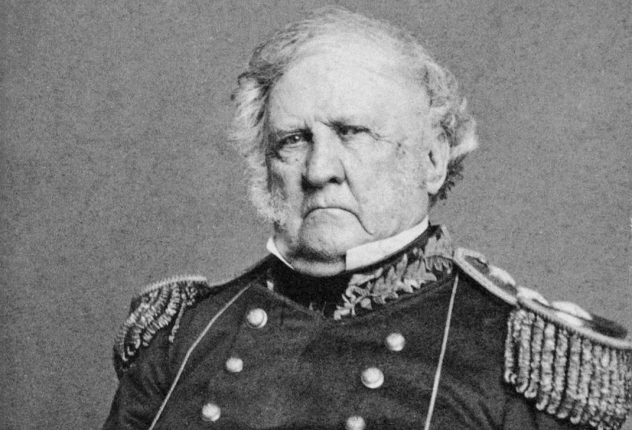
Throughout the history of the United States, a variety of career soldiers have decided to run for president. The most well-known and successful of them is President Dwight D. Eisenhower, who was a decorated general before becoming president. Another well-decorated and highly regarded military man who ran for president was Winfield Scott. Scott served with the US Army from the War of 1812 all the way to the Civil War and became a hero in his own right.
Scott became an artillery captain in 1808 and fought against the British in the War of 1812. During the war, the British captured Scott but traded him in a prisoner exchange. His bravery and success in the war made him a minor national hero. Scott stayed in the army after the war and organized the odious relocation of the Cherokee people in 1838 along the Trail of Tears. When the Mexican-American War broke out, Scott led the charge through Mexico and captured Mexico City, ending the war. His success made him a hero in the US and gave him enough political leverage to run for office.
In 1852, the dying Whig Party made the unusual decision of not supporting the Whig incumbent president Millard Fillmore and instead nominated Winfield Scott for the candidacy. Scott lost to Democrat Franklin Pierce and was the last Whig candidate. A few years later, the Whig Party crumbled, and the Republican Party replaced it. Congress gave Scott the rank of lieutenant general in 1855, making him the second person in US history to earn the title after George Washington.
By the time the Civil War began in 1861, Scott was too old to fight on the front lines. He instead drafted a plan to use blockades and rivers to defeat the South. Other generals laughed at his so-called “Anaconda Plan,” but by the middle of the war, the Union adopted Scott’s proposal and used it to defeat the South. A year after the war ended, Scott died at the age of 79.
8 Wendell Willkie
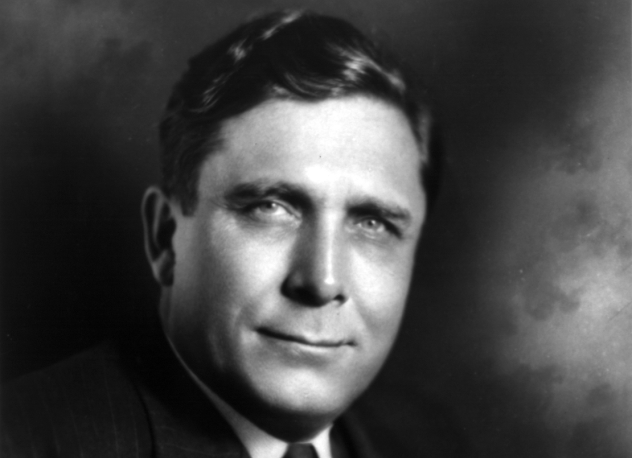
In 1940, the United States was especially concerned with the trouble in Europe and the start of World War II. The country was divided between isolationists who did not want to enter the war and interventionists who felt that the US was not doing enough to aid its allies. As the debate raged on, a presidential election began with incumbent Franklin Delano Roosevelt running for his third term. Against him was Republican Wendell Willkie, an unlikely presidential candidate, but one who gave FDR a run for his money.
Willkie began his journey to campaigning when he became chief lawyer for Commonwealth and Southern, a large electric utilities company. He was so successful as a lawyer that his company appointed him chief executive. During this time, he began to publicly criticize FDR’s New Deal programs, which he believed overregulated industries such as his own. Grassroots campaigns started up all over America to bring Willkie in as the Republican candidate. Eventually, he secured the nomination and campaigned tirelessly.
At the start of his campaign, Willkie supported FDR’s interventionist policies and did not criticize any of the aid that the government was giving to its allies. However, once he realized that he was losing moderate Republicans with his interventionism, he supported an isolationist policy. The race was close, but Willkie lost. As soon as the election was over, Willkie returned to his true beliefs and supported FDR’s controversial lend-lease policies.
During the war, Willkie traveled to give support to America’s allies. He wrote a controversial book which supported Eleanor Roosevelt’s Freedom House and outlined plans to promote world peace after the war. His support for FDR made him an outcast from the Republican Party, and he failed to get the nomination for the 1944 presidential campaign. Later that year, he died of a heart attack.
7 Lyndon LaRouche
Lyndon LaRouche is one of America’s most well-known and influential political extremists. He ran for president many times as both a Democrat and a member of the Labor Party. Fortunately, he has never come close to winning political office and has never actually held any sort of political position. Although LaRouche began his political career as a Marxist in the vein of Trotsky, his politics devolved into full-blown fascist totalitarianism.
LaRouche’s politics are hard to pin down, and he holds a few odd opinions. First of all, he is a Holocaust denier and quite anti-Semitic. LaRouche believes that global warming is a hoax and also believes in a massive British conspiracy to take over the world. He holds to a strict neo-Platonic view of the world, rejecting most modern philosophies, and believes that colonizing Mars is the key to the future of the human race. He has also been on record many times stating that the world is on the brink of economic collapse.
LaRouche is very good at getting money, but that got him in trouble with the IRS, which sentenced him to 15 years in prison for fraud. During that time, he declared his candidacy for the 1992 presidential race and got some votes from his followers. Five years later, he was released on parole and continued his political activities. LaRouche still attempts to stay relevant in modern politics by calling for the impeachment of President Obama and a return to FDR’s economic policies as well as complete global warming denial. At this point, it is hard to tell exactly what LaRouche wants.
6 Winfield Hancock
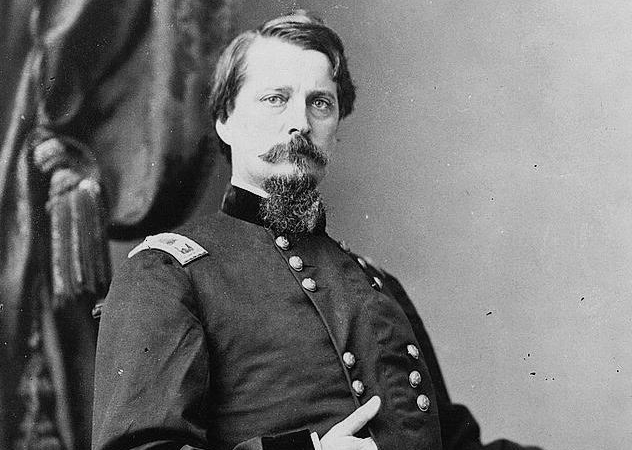
Much like the other Winfield mentioned above, Winfield Hancock was a decorated military leader. He served with the US Army during the lead-up to the Civil War and achieved the rank of brigadier general. During the Battle of Williamsburg, Hancock took two abandoned redoubts and distinguished himself with his bravery and tenacity during the battle. Although the Union lost, Hancock made an impression on the nation, and he continued to serve in the most important battles of the Civil War.
Surviving the war, Hancock became a key postwar general. He led the execution of the Lincoln assassination conspirators. After the war, Hancock remained in the army but didn’t find himself in the public eye until he began to criticize the Republicans’ policies toward the South. Hancock was one of the few Union military leaders with Southern sympathies, and this enamored him with the Democrats.
The Democrats elected Hancock as their candidate in 1880 to run against James Garfield. His soft stance against the Southern states made him extremely popular in the region. He carried all of the Southern states in the general election. However, Garfield (barely) won by 10,000 votes, making the 1880 election the closest in US history. Hancock went back to the military and served there until his death in 1886.
5 Steve Forbes
With real estate mogul Donald Trump stealing headlines with his comments and huge campaign funds, it’s easy to forget that the same situation occurred in 1996. In that election, Steve Forbes (CEO of the famous Forbes magazine) ran for office, offering to use his business knowledge to help get America back on track. He decided to do so despite his lack of political experience.
The centerpiece to Forbes’s campaign was an extremely low flat tax rate. Forbes campaigned on the promise of setting all taxes to 17 percent, with special exemptions for lower-class families. In his campaign brochures, he also promised to cut government agencies that he believed were wasteful, including the Departments of Energy, Environment, and Commerce. He also favored term limits for all US government officials. Backing up Forbes’s campaign were a variety of investors and, most importantly, Forbes’s own sizable fortune. In the end, he spent $28.6 million of his own money and still didn’t get nominated.
Undeterred, Forbes ran again in 2000 looking for the Republican nomination over party favorite George W. Bush. In this campaign, he spent $32 million but again didn’t win the nomination. This time, pundits believed that his campaign was too focused on individual issues and did not attract a large audience. His immense personal wealth, inherited from his father, also contributed to the public being distrustful of Forbes. Nowadays, Forbes still remains outspoken in politics, endorsing Donald Trump’s campaign.
4 Wesley Clark
Wesley Clark spent 34 years in the military, eventually achieving the high rank of supreme allied commander of Europe in 1997. Before that, he served in Vietnam and later gained notoriety for his involvement in the Waco siege and drafting up exit strategies for the US occupation of Haiti. However, his most important contribution was commanding the NATO intervention in Kosovo between 1997 and 2000. After stepping down from his position, Clark became actively engaged in politics and contemplated a presidential run.
The 2000 election came too soon after his retirement for Clark to enter, but he geared up for the next election and announced his candidacy in 2003 in response to a grassroots campaign encouraging him to run. From the start, Democrats questioned Clark’s party alliances. He ran as a Democrat due to his pro-choice and pro-education stances as well as his opinion that the Bush administration was mishandling the War on Terror. Political pundits questioned whether he was actually a Republican, however, noting that only with his campaign announcement did Clark begin to espouse Democratic viewpoints. The early rumors that Clark was only a Democrat out of convenience hurt his campaign.
Although he started out strong, Clark’s popularity slowly diminished, and he eventually withdrew from the race and supported John Kerry. Clark is now well-known for some odd statements he has made. During his campaign, he stated that he was a big proponent of faster-than-light travel and hinted that the physics behind the speed of light might be incorrect. Recently, Clark has advocated setting up internment camps for people suspected of being radical Islamic terrorists, an opinion that is strongly against the ideals of the party under which he ran for president.
3 Homer Aubrey Tomilson

The United States has seen its fair share of theocratic politicians, and one of the most well-known and interesting is Homer Aubrey Tomilson. Tomilson was a bishop in his church and decided that America had fallen away from its Godly values. To save the country, he started the Theocratic Party and ran for president in the 1952 election. No records survive that show how well he did, but Tomilson remained the standing candidate for his party until his death.
Tomilson’s plan for the country followed a strict Biblical interpretation of the government. The Theocratic Party platform called for a complete unification of church and state as well as replacing the tax code with flat Biblical tithing. If Tomilson became president, he would have also added two new cabinet positions—secretary of the Bible and secretary of righteousness. Obviously, he never won any elections.
Tomlinson grew increasingly delusional near the end of his life. He eventually declared himself king of the world and held coronation ceremonies in 101 world capitals. When he died in 1968, his political party fizzled, and no worldwide theocracy ever materialized.
2 Victoria Woodhull
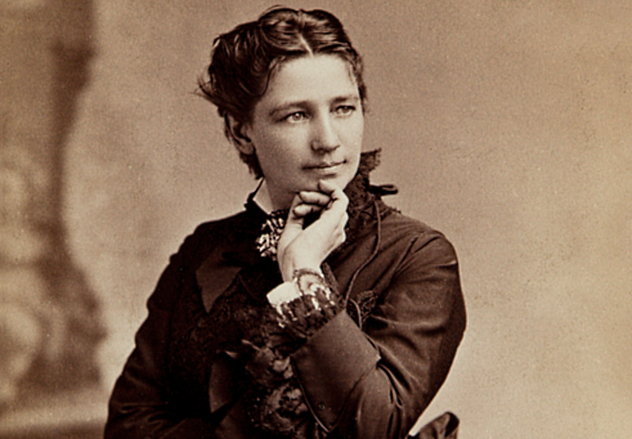
Hillary Clinton has garnered a lot of attention for the possibility of becoming the first female US president. But without Victoria Woodhull, she would never have the chance. Woodhull is one of the most interesting characters in United States history. She was a stockbroker, clairvoyant, women’s rights leader, and eventually the first female presidential candidate. She achieved all of this without ever holding public office.
Her rise to the public spotlight began in 1868, when Woodhull and her sister opened the first stock firm run by women. They never got a spot on the New York Stock Exchange, but their highly publicized company opened up new possibilities for women in finance. During her time in finance, Woodhull became very outspoken about politics and women’s rights. In her magazine Woodhull and Claflin’s Weekly, she advocated for women’s suffrage, birth control rights, and a woman’s right to marry, divorce, and bear children without government interference. The small magazine became important to social reformers when Woodhull published the first English translation of Karl Marx’s Communist Manifesto.
When the 1872 election came around, Woodhull became the candidate for the Equal Rights Party, which focused on women’s suffrage and equal rights for women. Woodhull chose escaped slave Frederick Douglass as her running mate, although Douglass never agreed to run with her and never attended any party conventions. She gained enough notoriety to make enemies. Three days before the election, she published an article exposing the adultery of a prominent Brooklyn reverend. The reverend’s supporters bribed the police to arrest Woodhull, and she spent Election Day in jail. Woodhull obviously didn’t win the election, but she paved the way for other prominent female politicians at a time when women still were not even allowed to vote.
1 Earl Browder
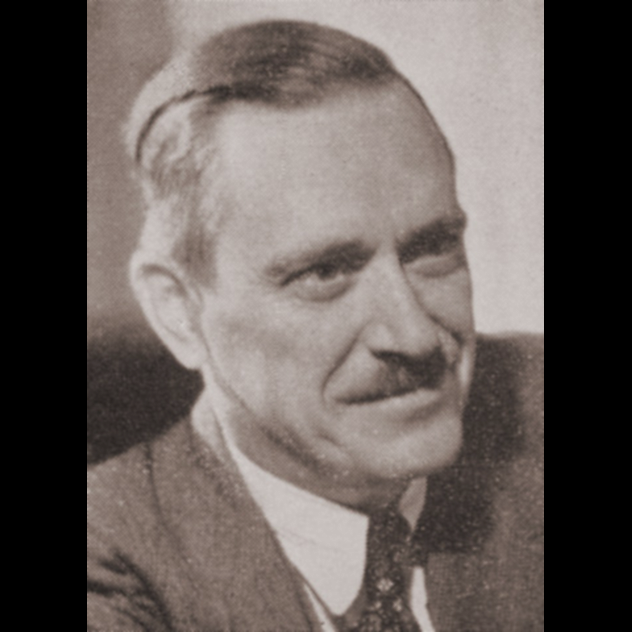
When the United States entered World War I, a number of young men refused to register for the draft. In accordance with US law, they received prison terms for as much as three years. Among the draft objectors was Earl Browder, a young socialist. Browder’s socialist sympathies morphed into support for communism, and in 1921, he joined the American Communist Party. By sticking with the party and showing a zeal for the message, Browder became the party’s head in 1932 and led it into its most prosperous period.
At that time, the Communist Party was a recognized electoral party in the United States. As head of the party, Browder became their de facto presidential candidate for every election. To gain influence on the public stage, he lead the party to support FDR’s New Deal programs. During this time, he still ran for president against FDR, but he realized that for his party to gain influence, they would need to make friends outside of their political ideology. The 1940 election was Browder’s last attempt at presidency and occurred while he was in jail for possessing a fake passport.
When World War II broke out, the Communist Party was supportive of FDR’s war policies. When the country was following a strict interventionist policy, the Communist Party supported the government, and they became militantly supportive of the war effort when the US entered the war. Part of this was Browder’s recognition that the goals of the United States aligned with the goals of the Soviet Union at the time. However, as the war ended, the Communist Party went through a rapid restructuring. The alliance that Browder forged with the government was seen as detrimental, and Browder’s support of FDR in the 1944 election concerned other party members. Under pressure, Browder left the party and ended his political career.
Zachery Brasier is a physics student who likes to write on the side. Check out his personal blog at zacherybrasier.com.





